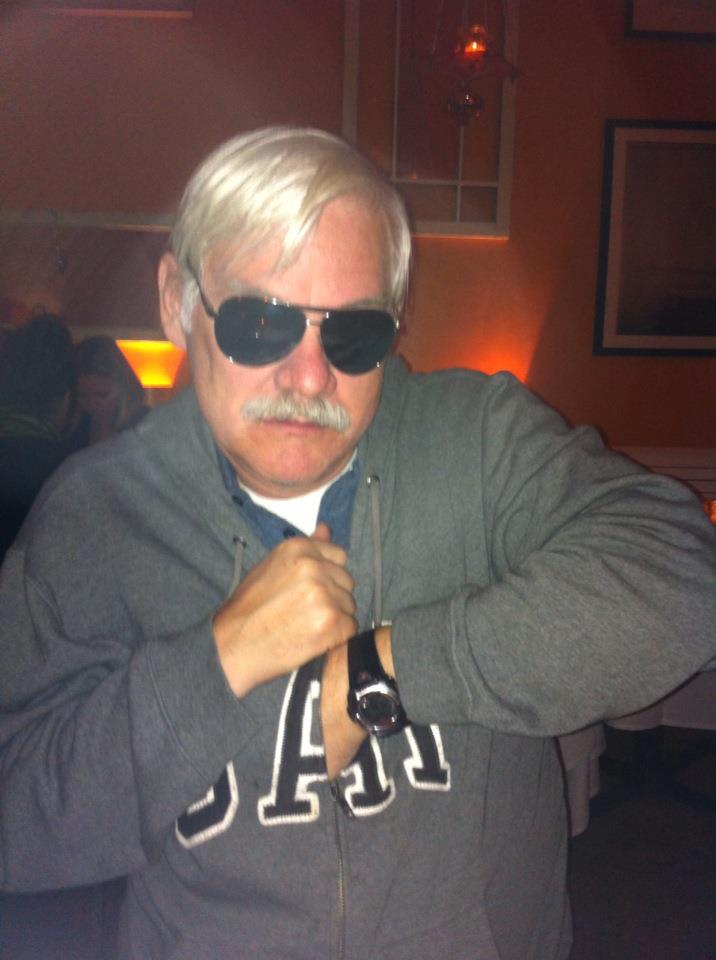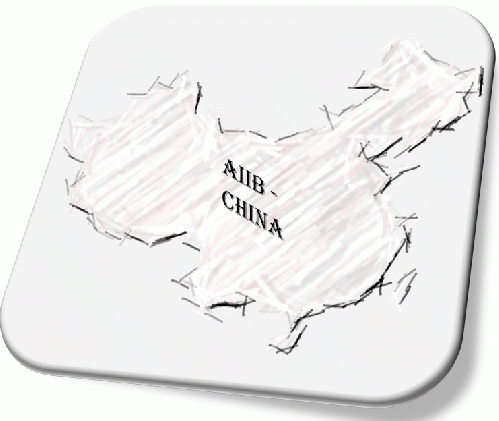After WWII the world's commercial centers were a very lonely and broken place. Europe's lay in tatters; the Soviet Union's European region resembled the aftermath of a Godzilla & Friends Stompfest; China's were mired in civil war and corruption while the Third World's surveyed the whole with awe and sorrow but with little chance of helping. Only the manufacturing centers of North America had been spared the horrors of the recent debacle and had the ability to respond accordingly.
In 1944, the major world players decided that the fastest way to recovery could only come from a consortium of nations pledging help through international means of extraordinary stature. It was decided that the US dollar would be the world's first fiat currency to be used in transactions in nearly all countries who were signatory to the Bretton Woods Agreement.
The International Monetary Fund and the World Bank were set up to help countries in need with the first years pretty much dedicated to helping Western Europe rise from its self-inflicted ruins.
After 1947, the WB started helping other countries as well. The WB was used to provide straight-up loans while the IMF was considered the sheriff of last resort who loaned money on a short-term basis with heavy penalties often added on. Over the years, they have had a checkered history of creating crisis and inflicting abject poverty on regions they were supposedly helping reform through "free market" principles.
At the same time, those that weren't connected to these two institutions were on their own, such as the Soviet Union, Eastern Europe, and those countries that were under embargo by the US such as Cuba, North Korea, North Vietnam, Cambodia and China, among other nations. The only major viable source of international monetary aid for those countries was Comecon, the Council for Mutual Economic Assistance, started by the Soviet Union in 1949. These countries were barred from the foreign-exchange program set up by the IMF to facilitate international commerce, trade and tourism. Since their money was useless in most of the world, trade and tourism were practically impossible.
I remember buying 3,000 Polish zloty in 1978 for $7 from a Swiss bank in Geneva (worth "officially" about $300 in the Polish banks) and stuffing them in my shoe before flying to Warsaw on an interairline tour. The bank clerk told me they were worthless outside of Poland to which I replied, "I know. They're for a university project I'm doing on postwar Poland." When I arrived, the Polish customs officer asked me if I was bringing in any zlotys from Switzerland. I again lied and say, "No way. They're worthless."
That's how the world's economy has been structured post WWII. When the Soviet Union died in the early 1990s almost all opposition to the two institutions, the IMF and WB, ceased. The US was basically the sole master of world economic funding.
Since then, South America has done their best to shore their commercial trading strength through MercoSur, a trading block consisting of Argentina, Brazil, Paraguay, Uruguay and Venezuela with associate countries of Chile, Bolivia, Colombia, Ecuador and Peru. They've even opened up a bank, BancoSur, in 2009 with Venezuela leading the way. However, the members, Argentina, Brazil, Paraguay, Uruguay, Ecuador, Bolivia and Venezuela have only regional aspirations right now.
The European Union has also emerged with its new money, the Euro, and most of Europe as members. Their block is economically huge and has already made itself felt way beyond its European borders. But the Euro has been struggling with some of its smaller members such as Ireland, Portugal and Greece. Great Britain, Sweden and others still use their own currency and there are rumors of possible defections among the members.
There appeared to be nothing on the horizon that could possibly perturb the monopoly of the IMF and the WB, at least not until now. The Asian Infrastructure Investment Bank, or AIIB, has emerged on the scene as the new kid on the block and it has emerged with a vengeance. It is proposing $50 billion to invest around the world as soon as the end of this year. Its original membership reads like a who's who of forgotten third-world countries hungry to become part and parcel with the 21st century: Bangladesh, Brunei, Cambodia, China, India, Indonesia, Jordan, Kazakhstan, Laos, Malaysia, Maldives, Mongolia, Myanmar, Nepal, Pakistan, Philippines, along with a few that are already doing fine for themselves, Hong Kong, Kuwait, Oman, Qatar and Saudi Arabia.
And now, it has run the table. Despite intense politicking by the US against its "friends" joining, Australia and South Korea have already expressed interest. At the beginning of March, the UK, France, Italy and Germany announced plans to join. New Zealand, Singapore and Thailand have also joined. In just the past few days, Switzerland and Luxembourg, two banking powerhouses in Europe, have also announced their plans to join. Japan is on the fence, but is swaying ever closer to joining.
Along with China, the other BRICS members are part of another initiative, a new development bank, which will complement the AIIB. A new Silk Road in Asia is being proposed as well to improve connectivity between China, Asia and Europe. The Manila-based Asian Development Bank published a study in 2009 that suggested $8 trillion between 2010 and 2020 would be needed throughout Asia to improve infrastructure for such an endeavor. AIIB appears to be setting its sights on just such a goal.
Meanwhile, needed reforms of the IMF to deal with this changed world are stalled in the American Congress. There are snipes and individual threats from its members, but no coherent approach behind the president has been forthcoming, leaving the world in flux. While America hesitates, China is providing leadership, direction and impetus. They are creating vehicles to take charge and along with their partners they are providing monetary means to identify specific projects worthy of investment around the world.
After WWII the world was a shambles. Europe and its colonies as well as most of Asia turned to the US for help. South America looked northward for guidance. The USSR and China, along with their partners, were shunned and discarded by the US. What did the US do? The US responded! The Marshall Plan went to prop up and propel Europe towards its former stature. Through the IMF and WB, the US, as the majority participant, helped those countries most devastated by the war, except the Soviet and Chinese blocs. Germany, Japan, Great Britain, France, Italy, and others returned to normalcy at record speed in large part due to the concerted efforts of the US.
But our economic assistance turned to financial greed. Rather than helping other countries elevate out of the morass and devastation of third-world poverty, our national focus changed to corporate gain and personal profit at the expense of the target country. We started ransacking raw materials elsewhere, imposing US political and financial policy regardless of regional benefit and throwing our military might around as a first resort to resolve our differences. Countries stopped looking to us for guidance and started fearing us for our demagoguery.
(Note: You can view every article as one long page if you sign up as an Advocate Member, or higher).






